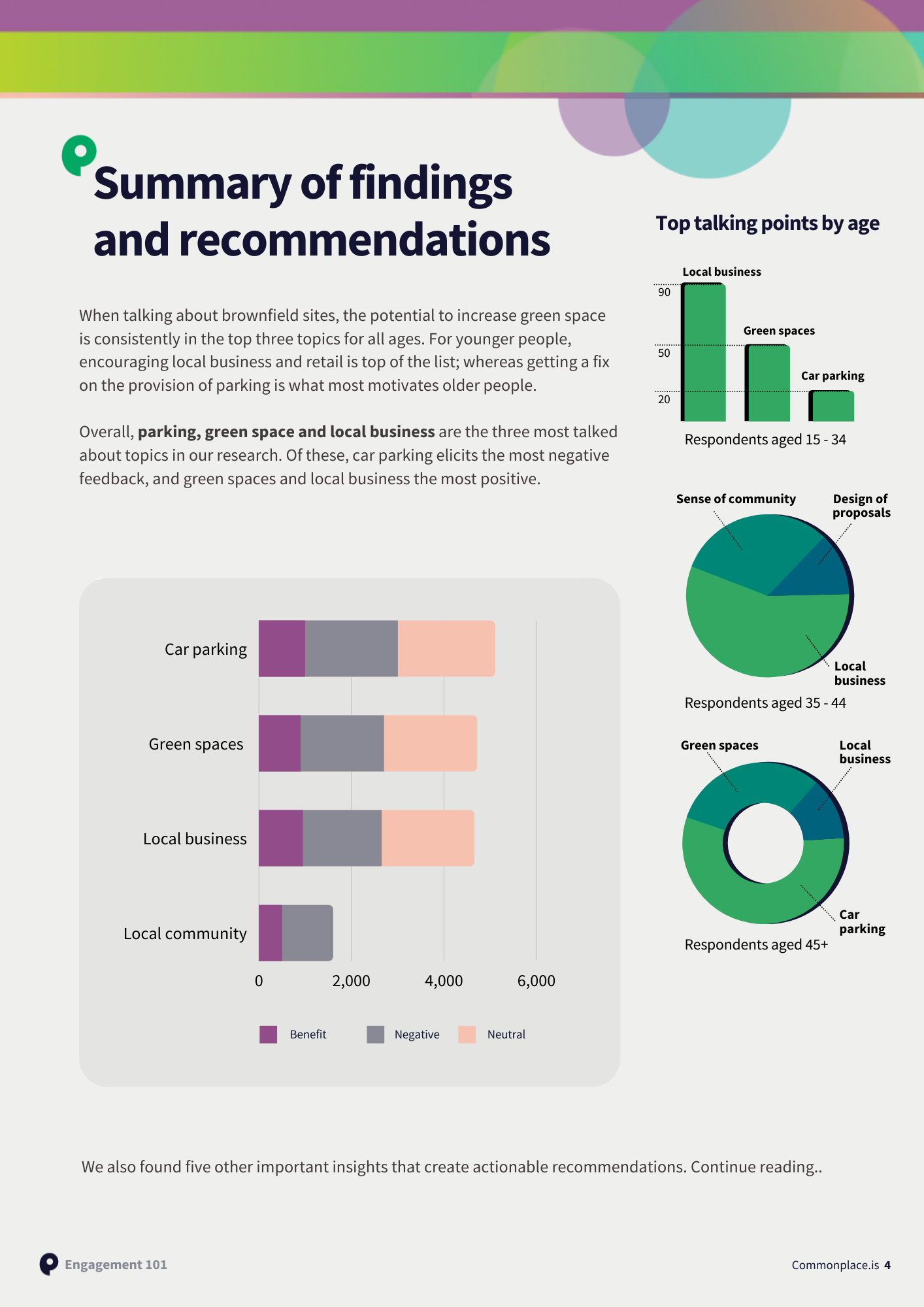Research eBook
From Brownfield to Green Space

.png)
Download Our Research Paper
When talking about brownfield sites, the potential to increase green space is consistently in the top three topics for all ages. For younger people, encouraging local business and retail is top of the list; whereas getting a fix on the provision of parking is what most motivates older people.
Overall, parking, green space and local business are the three most talked about topics in our research. Of these, car parking elicits the most negative feedback, and green spaces and local business the most positive.
Commonplace is a leading digital engagement platform that connects people to places. We help bring together those shaping the built environment with the people who use, love and enjoy them.
Download the research now, or read below for more info.
In this guide you'll find:
- 6 actionable engagement recommendations.
- Key barriers preventing people from engaging, by age.
- Applicable principles that ensure effective engagement.
Want to read the full report?
Click hereIntroduction
There has been a strong interest in brownfield sites as development locations for some time. The government’s Levelling Up white paper has recently underlined the acceleration of this trend with funding and resources, such as the newly webified database of brownfield sites.
The Levelling Up white paper also makes it clear that engagement and community (mentioned 451 times in the paper) are priorities that will not be diminishing. So how do you bring brownfield sites and engagement together?
Commonplace is a community engagement platform that has been used on over 1600 projects across the whole of the UK, engaging more than 5M people in the process - for developers, councils and housing providers.
We are in the unique position of sitting across large numbers of engagement projects, which provides the opportunity to look at trends and to suggest best practice that will reduce project risks and uncertainty, and improve outcomes.
“"It would be lovely if we didn't need parking spaces, but it's just not realistic without better public transport.”
- M.J., 28, student in Newcastle upon Tyne.
In this report we aim to outline and highlight through our experience and research, that continual and meaningful engagement really matters for all stakeholders. It removes the conflict that can alienate local people. It results in better decisions made more swiftly and with fewer obstacles since most of the problems are resolved much earlier in the process. It fosters long-term trusted relationships between residents, planning authorities and developers.
It also matters to a national Government that wants to revitalise, rebuild and re-imagine those communities most in need of regenerating – the so-called ‘levelling-up’ agenda. Engagement is vital to ensure that those people who feel so connected to their local communities and who have such enormous civic pride in the places where they live also feel ownership over the future of their cities, towns and villages.
We hope that this report makes the case that such engagement is only really successful when it is done early on in the process and continues throughout – from strategic principles to final build and use of a development.We are concerned that the proposed reforms do not quite deliver this at the moment.
This report looks at 20 brownfield projects in London and around the country that have elicited over 8,000 comments from the public. We have sliced and diced this data to come up with insights and recommendations for anyone thinking about or starting a brownfield development project.
Want to learn more? Download the full report at the top of the page.
